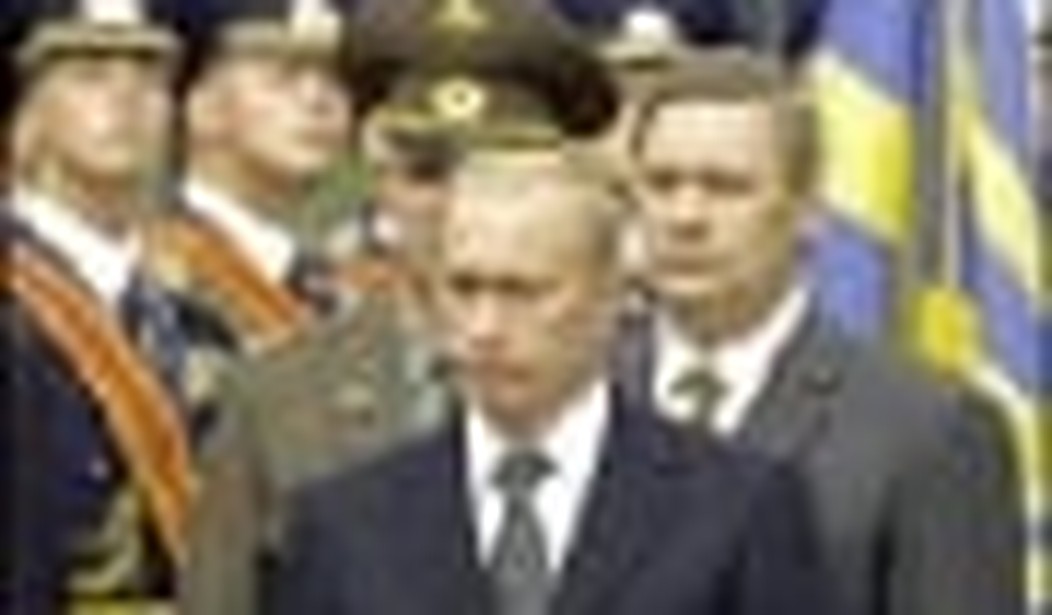All Vladimir Putin wanted for Christmas was power eternal. And all he needed were 142 elves — who bear a striking resemblance to dutiful federation council senators — to bring that gift closer to reality.
Last Monday, the entire upper house of parliament voted to extend the Russian presidential term from four years to six years, a move recommended by President Dmitry Medvedev in his annual November address. But really, you didn’t think the “reform” was meant for Medvedev, did you? Or that anything occurring behind the walls of the Kremlin is intended to extend the reign of this Putin-anointed technocrat?
Putin not only has crafted the prime minister’s post into a more powerful position, but he wants to return to the presidency — and have fewer vocal enemies, too. Carefully laying out the groundwork for the extended Putin regime of the future, pro-Kremlin Duma members have handily advanced a bill that could categorize dissent as treason — disrupting the “constitutional order” of the country, for one. And a bill has already been passed eliminating jury trials for treason suspects.
A few whacks of the baton, into the police car, into the court, disappear. Or just disappear. So seems the way of the future for Russia’s opposition. Coincidentally, it’s also the way of the past.
Earlier this month, the Russian opposition coalesced into a movement taking the name of the successful anti-communist trade movement years ago in Poland: Solidarity. The movement takes shape as economic troubles in Russia set the stage for growing discontent with the current government, a prospect for grander protests that clearly has the Putin crew concerned. In addition to the now-expected jamming of opposition Web sites, Moscow sent riot police to the Pacific coast of the country to beat Vladivostok residents who were protesting the Russian version of a domestic auto-industry bailout: hike tariffs on imported used cars so that the price of a trusty Toyota skyrockets as much as 50 percent, thereby “encouraging” Russians to support their Volga and Lada dealers.
And as suicides among the economically depressed increase, Russia responds not with counselors but by reportedly moving Internal Forces troops to cities hit hardest by layoffs, and thus more likely to demonstrate. Though Gennady Gudkov, the deputy chair of the State Duma Security Committee, told newspaper Nezavisimaya Gazeta, “It could happen that no amount of Internal Forces will be enough.”
In response to the growing economic crisis — last Wednesday marked the seventh devaluation of the ruble this month, and stocks have lost about 70 percent of value since May — Mikhail Gorbachev has formed a coalition to propose alternatives to the Kremlin’s heavy-handed economic management. “The anti-crisis measures are being adopted without a democratic process and the subsidies given out often vanish into thin air or end up in someone’s pocket,” said a statement from Gorbachev and others.
There’s no doubt that dark times of upheaval lay ahead for Russia — never mind their missile-happy generosity that should prove to be a foreign-policy disaster for us — and the crackdown on economic discontent will put many ordinary Russians who might normally steer clear of politics in the cross-hairs of violent government crackdowns. There’s also fresh fear that the opposition names who have managed to avoid a fate like that of Alexander Litvinenko or Anna Politkovskaya face new danger. I’d always believed that opposition leader Garry Kasparov’s legacy as a chess champion kept him relatively out of harm’s way, save for the occasional Kremlin youth goon taking a swing at him with a chess board. But now I fear that it might soon be checkmate, because unlike Nikita Belykh, the onetime opposition leader, did this month, Kasparov won’t be turning tail and accepting a regional governorship from the Kremlin anytime soon.
But will the economic crisis causing turmoil around the rest of the globe be a catalyst to bring about positive change in Russia — something, like, er, regime change as the disgruntled masses no longer see power-hungry Kremlin as a nationalist messiah? If so, the word will have a hard time getting out: The attacks on Russia’s journalists continue, and are so brazen that Ingush online journalist Magomed Yevloyev — whose site was ordered closed for “extremist” articles — was shot in the head on Aug. 31 while in the custody of the interior ministry.
The riot police beating up the peaceful protesters in Vladivostok also beat and arrested several journalists, ordering that they turn over any video or memory cards from their cameras. But thanks to cell-phone cameras and online technology, word spread of the crackdown unlike it could during the Soviet era. And that could be the edge that the common Russian needs to fight back against this next authoritarian steamroll.









Join the conversation as a VIP Member